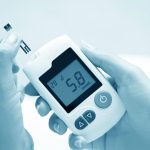USA
Voluntary Malfunction Summary Reporting (VMSR) Program for Manufacturers
The VMSR (Voluntary Malfunction Summary Reporting) Program allows device manufacturers to report certain device malfunctions quarterly in summary form instead of submitting individual malfunction reports. Manufacturers can voluntarily participate without needing FDA approval and may opt out at any time. If they leave, they must resume individual malfunction reporting within 30 days and update their procedures accordingly. The program helps the FDA monitor device safety and effectiveness more efficiently by ensuring sufficient information is provided to detect safety issues and trends. Eligibility criteria and reporting conditions are detailed in the guidance.
Small Entity Compliance Guide on Mammography Quality Standards Act and Regulation Amendments
Mammography is an x-ray exam used to detect breast cancer, and its effectiveness depends on high-quality services, including qualified technologists, well-maintained equipment, and accurate interpretation by physicians. The Mammography Quality Standards Act (MQSA) sets federal standards to ensure all patients have access to quality mammography. These standards cover accreditation, personnel qualifications, equipment, quality assurance, and communication of results. The 2023 MQSA Rule updates these regulations, requiring mammography reports to include breast density information, with clear summaries provided to patients and their healthcare providers. FDA guidance documents offer recommendations but are not legally binding unless specified.
Guidance on Electronic Submission Template for Medical Device De Novo Requests
The guidance outlines the technical standards for preparing the electronic submission template for De Novo classification requests, allowing submissions to be made entirely in electronic format. The template is designed to help collect and organize all necessary elements for a complete submission. While the guidance does not define the user interface or specific content of the eSTAR tool, it sets the electronic format and standards for compliance with section 745(A)(b)(3) of the FD&C Act. FDA plans to update eSTAR as policies evolve and continues to gather public comments and feedback through its website.
FDA and Industry Procedures for Section 513(g) Requests for Information under the Federal Food, Drug, and Cosmetic Act
The guidance outlines the procedures for submitting, reviewing, and responding to requests for information about a device’s classification or the applicable requirements under the FD&C Act, in accordance with section 513(g) of the Act. FDA guidance documents provide the Agency’s current thinking and recommendations on a topic but are not legally binding unless specific regulatory requirements are mentioned. The term “should” in these guidance indicates a suggestion or recommendation, not a mandate.
Guidance on Acceptable Media for Electronic Product User Manuals
The guidance clarifies that manufacturers may provide user manuals for electronic products in either paper or electronic formats. This change acknowledges the increasing reliance on electronic media, which reduces paper usage, improves accessibility, and enables rapid updates. FDA guidance documents reflect the Agency’s current views and offer recommendations, but they are not legally binding unless specific regulations are cited. The term “should” in these guidances suggests a recommendation, not a requirement.
CANADA
Medical Devices Licence Amendment Minor Change Form – Guidance for Changes to the Manufacturer’s Name and / or Address of Existing Device Licences and/or COVID-19 medical device authorizations
Manufacturers holding an existing medical device license (MDL) and/or COVID-19 medical device authorizations who wish to change a name or address must use our minor change form. The form provides detailed information on the requirements.
COLUMBIA
Guide for the implementation of requirements for certification visits of medical devices on hearing aid measurement
The guide is intended for establishments involved in manufacturing, assembling, or repairing over-the-counter hearing aids within the national territory. It outlines the necessary steps to ensure these hearing aids meet quality standards designed to aid individuals with hearing impairments. It provides instructions on adhering to the requirements of Resolution 5491 of 2017, which covers the opening and operation of these establishments. The guide also offers recommendations for maintaining compliance with certification standards, which are valid for five years.
EUROPE
European Commission proposes common specifications for IVDs for parasites, viruses
The European Commission has proposed updates to common specifications for certain class D in vitro diagnostic devices to include tests for specific parasites and viruses of public health concern. Stakeholders have four weeks to comment on these proposed amendments, which, if finalized, will revise Regulation (EU) 2017/746 to address additional public health issues.
EMA New pilot programme to support orphan medical devices
The European Medicines Agency (EMA) has launched a pilot program offering free advice to medical device manufacturers and notified bodies for orphan medical devices. This program, part of a 2022 law, will use a risk-based approach to select devices and, if successful, may become a permanent model to support orphan products. The program applies to devices intended to treat or diagnose rare diseases affecting up to 12,000 people annually in the EU.
CZECH REPUBLIC
Questions and answers on Registration of a person
The section for the regulation of medical devices has published a set of questions and answers to address the reporting obligations of individuals involved with medical devices.
Commission survey to extend the scope of the regulation on electronic instructions for use of medical devices
In accordance with the discussions on the scope of the implementing regulation (EU) 2021/2226 on electronic instructions for use of medical devices, the Commission has prepared a survey targeting healthcare workers and experts in healthcare facilities. The survey aims to gather feedback on the potential extension of the regulation’s scope to include all devices intended for professional use. Additionally, it includes an open-ended question to collect input on products intended for non-professional use.
PORTUGAL
Publication of Commission Implementing Decision (EU) 2024/2120 on the renewal of the designation of entities issuing unique identifiers (UDI) for Medical Devices
On 30 July 2024, Commission Implementing Decision (EU) 2024/2120 was published, renewing the designation of four entities authorized to operate a UDI (Unique Device Identifier) assignment system for a further five years. The designated entities are GS1, HIBCC, ICCBBA, and IFA. These entities were initially designated under Commission Implementing Decision (EU) 2019/939 after meeting relevant criteria under Regulations (EU) 2017/745 and 2017/746. The renewal followed an assessment confirming their continued compliance with the designation criteria and conditions.
Survey release on Electronic Instructions for Use (eIFU) for medical devices : Opportunity to share your thoughts on (eIFU) for medical devices
The European Commission is conducting a survey, open until 11 October 2024, on the use of Electronic Instructions for Use (eIFUs) for medical devices. The survey targets healthcare professionals and those working in healthcare institutions. Its purpose is to gather input on whether eIFUs should be allowed for all devices intended for professional use, while ensuring that a paper copy of the instructions for use can always be requested free of charge.
SWITZERLAND
EU IVDR amendment: Equivalence with EU Regulation on Medical Devices ensured
Swissmedic is enforcing the EU’s recent amendments to the In Vitro Diagnostic Medical Devices Regulation (EU-IVDR) to prevent supply issues in Switzerland during the transitional phase before the Swiss IvDO is amended. The EU adopted Regulation (EU) 2024/1860 on 13 June 2024, extending the validity of certain IVD certificates until 2027-2029 due to bottlenecks at notified bodies. The Swiss Federal Council announced that these amendments would also be implemented in Switzerland. Swissmedic will tolerate the extension of certificates issued under the old EU legislation and will align its enforcement with EU guidelines, with full product registration requirements coming into effect in 2026. Swissmedic remains responsible for market surveillance and may enforce corrective measures to protect public health.
swissdamed – swiss database on medical devices
Swissmedic launched the first module of its new medical devices database, “swissdamed,” on 6 August 2024. The database, which is being rolled out in phases, is designed to register economic operators and medical devices, including in vitro diagnostic devices, on the Swiss market. The first module, “Actors,” allows for the online registration of economic operators. The “Devices” module will be introduced in phases starting in 2025, with mandatory device registration becoming necessary once the database is fully developed and regulations are amended.
UNITED KINGDOM
Update: Guidance on Notify MHRA about a clinical investigation for a medical device
The guidance provides Information on how to notify the MHRA to carry out a clinical investigation for medical devices.
As part of the process to obtain UKCA, CE, or CE UKNI marking for your medical device, need to conduct a clinical investigation. And must notify the MHRA at least 60 days before starting the investigation.
Update: Guidance on Chapter 10 – general advice on vigilance – electronic cigarette devices and refill containers – Great Britain
Part 6 of the Tobacco and Related Products Regulations 2016 (TRPR) requires producers of electronic cigarettes to notify the MHRA before marketing their products. Regulation 39 mandates that producers establish a system to collect information on suspected adverse health effects. If a product is unsafe, of poor quality, or non-compliant with the regulations, the producer must take corrective action, withdraw, or recall the product and immediately inform the MHRA and relevant authorities. Regulation 37 requires each product packet to include a leaflet with the producer’s contact details and, if applicable, a contact person in Great Britain.
Guidance on Export medical devices
The guidance outlines the procedure for ordering a Certificate of Free Sale (CFS) to export medical devices outside the UK.
The MHRA issues Certificates of Free Sale (CFS) only for medical devices registered with them and does not endorse or verify compliance with export requirements. CFS can be ordered exclusively by UK-based manufacturers, UK Responsible Persons, or Northern Ireland-based Authorized Representatives, and requires evidence of relevant conformity marks (UKCA, CE, CE UKNI).
HONG KONG
Update: Classification of General Medical Devices
The document applies to all general medical devices governed by the Medical Device Administrative Control System (MDACS). Under MDACS, general medical devices are classified into four categories: Class I, II, III, and IV, according to the rules outlined in Clause 7. The latest update pertains to Rule 14 of Clause 7.1, which has been revised.
INDIA
India launches online portals for adverse drug monitoring and Pharmacopoeia
The Indian government has introduced two new online portals: one for the adverse drug monitoring system (ADRMS) and another for accessing Indian Pharmacopoeia (IP) standards. The ADRMS portal, described as India’s first medical product safety database designed specifically for the Indian population, aims to simplify the reporting of adverse events related to medicines and medical devices. It will streamline the process for patients, caregivers, and healthcare professionals, and enable pharmaceutical industries to report adverse events directly.


